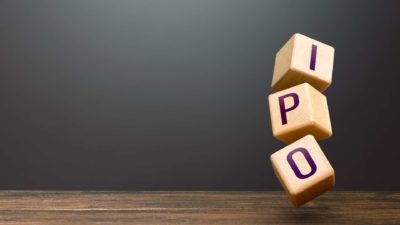Investors in at the ground level on a new artificial intelligence ASX share did pretty well for themselves on Friday.
Shares for Artrya Limited (ASX: AYA) listed on the ASX that morning and closed its first day at $1.52.
That's a handy 12.6% up from its initial public offer issue price of $1.35 per share.
What does Artrya do?
The Perth business develops technology to automate the diagnosis of coronary artery heart disease, which can lead to cardiac arrest.
According to Artrya co-founder and managing director John Barrington, internationally 9 million people die from such disease each year.
"This number is expected to increase over the next few decades, as ageing populations continue to put pressure on health systems," he said.
"This float will assist the company in pursuing further growth in the US, UK, Canada, and Europe."
A 10 November supplement to the original IPO prospectus showed that Artrya recently won a tender to be appointed as an artificial intelligence supplier for the National Health Service Shared Business Services (NHS SBS) Framework.
The deal means that Artrya is among a shortlist of pre-approved suppliers that UK public institutions, including 1,250 hospitals, can purchase from.
What's Artrya's pipeline?
Artrya's flagship software product is called Salix, which detects the presence of "vulnerable plaque" within a person's arteries in roughly 15 minutes.
According to the prospectus, such plaque may rupture and cause heart attacks.
Salix was developed as a collaboration between the University of Western Australia, the Harry Perkins Institute of Medical Research, and the Ottawa Heart Institute.
The software suite is scheduled for an "unrestricted launch" in Australia early in the new year. Overseas expansion will take place soon after that.
"We are keenly focused on product development and market entry strategies to ensure our shareholders are rewarded for their belief in an innovative Australian business," said Barrington.
Artrya chair Bernie Ridgeway said in the prospectus that coronary artery disease impacts an estimated 126 million people around the world.
And the majority will have no warning signs before experiencing a heart attack.
"As the prevalence of CAD rises due to an ageing population, global health systems will have to deal with more CAD cases."
In November 2020, Salix was added to the Australian Register of Therapeutic Goods (ARTG) as a Class 1 medical device.
Artrya will sell the software in a subscription model.
"This model will help Artrya penetrate the global CCTA and ICA markets because healthcare providers pay no upfront costs to use Salix," Ridgeway said.
"Artrya believes the software-as-a-service model could deliver annuity revenue and profitable margins for the company."









